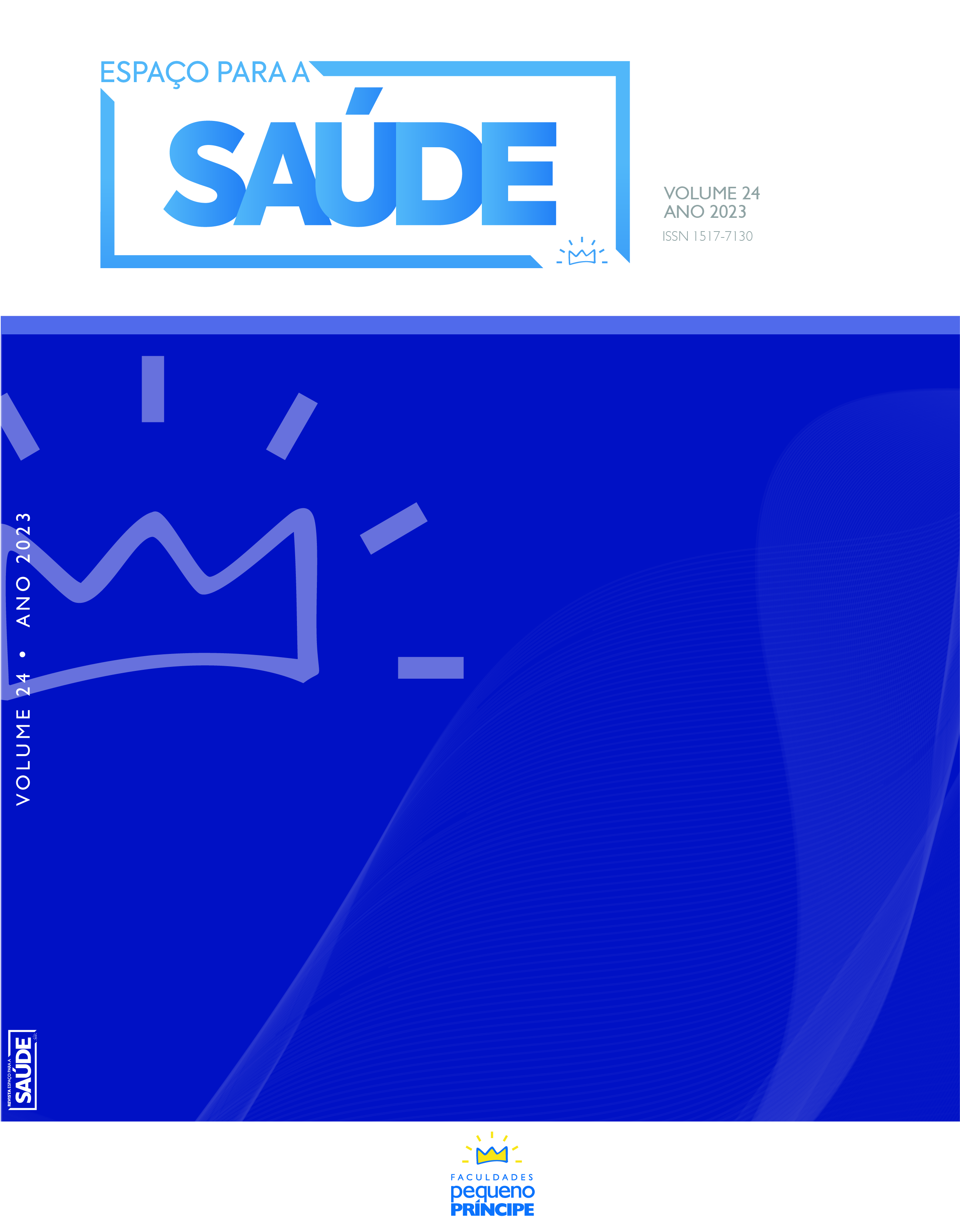Health students' opinion on the use of active methodologies in the remote teaching of human physiology
DOI:
https://doi.org/10.22421/1517-7130/es.2023v24.e939Keywords:
Education, Distance, Physiology, TeachingAbstract
The Covid-19 pandemic has been a challenge for education systems. Educational institutions have had to adapt to the new correlations between teaching and learning. The aim of this study was to understand the perception of higher education students regarding the use of active methodologies in the remote study of Human Physiology. This is a cross-sectional descriptive study with a mixed methods approach. 35 responses were obtained and 25 of the students considered the use of active methodologies in the teaching of Human Physiology to be positive. In recent decades, teaching in the health area has been debated, and the curriculum of active methodologies has stood out, as it seeks training with a broad view of man, forming an ethical, critical, reflective, humanized subject capable of transforming his surroundings. The use of active methodologies during the remote teaching period led to a greater gain in knowledge of human physiology.
References
Bardin L. Análise de conteúdo. 9a ed. Paris: Presses universitaires de France; 2001. 291 p.
Biggs J. What the Student Does: teaching for enhanced learning. High Educ Res Amp Dev [Internet]. 1999 [citado 23 ago 2023];18(1):57-75. Disponível em: https://doi.org/10.1080/0729436990180105
Dehdashti A, Mehralizadeh S, Kashani MM. Incorporation of Project‐based Learning into an Occupational Health Course. J Occup Health [Internet]. 2013 [citado 23 ago 2023];55(3):125-31. Disponível em: https://doi.org/10.1539/joh.12-0162-oa
Florêncio PC, Melo AL, Mercado LP. Aprendizagem baseada em problemas no ensino híbrido: perspectivas para o ensino superior. Rev Docencia Cibercultura [Internet]. 2022 [citado 23 ago 2023];6(5):267-87. Disponível em: https://doi.org/10.12957/redoc.2022.63576
Frankl S, Newman L, Burgin S, Atasoylu A, Fishman L, Gooding H et al. The Case-Based Collaborative Learning Peer Observation Worksheet and Compendium: An Evaluation Tool for Flipped Classroom Facilitators. MedEdPORTAL [Internet]. 2017 [citado 23 ago 2023];13(1). Disponível em: https://doi.org/10.15766/mep_2374-8265.10583
Freitas CM, Freitas CA, Parente JR, Vasconcelos MI, Lima GK, Mesquita KO et al. Uso de metodologias ativas de aprendizagem para a educação na saúde: análise da produção científica. Trab Educ Saude [Internet]. 2015 [citado 23 ago 2023];13(suppl 2):117-30. Disponível em: https://doi.org/10.1590/1981-7746-sip00081
Goodman BE, Barker MK, Cooke JE. Best practices in active and student-centered learning in physiology classes. Adv Physiol Educ [Internet]. 2018 [citado 23 ago 2023];42(3):417-23. Disponível em: https://doi.org/10.1152/advan.00064.2018
Hobbins JO, Murrant CL, Snook LA, Tishinsky JM, Ritchie KL. Incorporating higher order thinking and deep learning in a large, lecture-based human physiology course: can we do it? Adv Physiol Educ [Internet]. 2020 [citado 23 ago 2023];44(4):670-8. Disponível em: https://doi.org/10.1152/advan.00126.2019
Hughes JC, Mighty J. Taking stock: Research on teaching and learning in higher education. Kingston, Ont: School of Policy Studies, Queen's University, McGill-Queen's University Press; 2010. 277p.
Meyers C, Jones TM. . Promoting active learning: Strategies for the college classroom. San Francisco: Jossey-Bass; 1993. 192 p.
Moreno-Crespo P, Corchuelo-Fernández C, Cejudo-Cortés A, Hunt-Gómez CI. Innovative education at postgraduate level: Flipped classroom. SHS Web Conf [Internet]. 2019 [citado 23 ago 2023];66:01033. Disponível em: https://doi.org/10.1051/shsconf/20196601033
Oliveira BL, Lima SF, Rodrigues LD, Pereira Júnior GA. Team-Based Learning como Forma de Aprendizagem Colaborativa e Sala de Aula Invertida com Centralidade nos Estudantes no Processo Ensino-Aprendizagem. Rev Bras Educ Medica [Internet]. 2018 [citado 23 ago 2023];42(4):86-95. Disponível em: https://doi.org/10.1590/1981-52712015v42n4rb20180050
Sobral FR, Campos CJ. Utilização de metodologia ativa no ensino e assistência de enfermagem na produção nacional: revisão integrativa. Rev Esc Enferm USP [Internet]. 2012 [citado 23 ago 2023];46(1):208-18. Disponível em: https://doi.org/10.1590/s0080-62342012000100028
Tsang A, Harris DM. Faculty and second-year medical student perceptions of active learning in an integrated curriculum. Adv Physiol Educ [Internet]. 2016 [citado 23 ago 2023];40(4):446-53. Disponível em: https://doi.org/10.1152/advan.00079.2016
Upchurch AM, Kirkwood-Watts DL, Brazeal KR, Wheeler LA, Couch BA, Johnson GB et al. Access to Online Formative Assessments in Lower-Division Undergraduate Biology Courses: Investigating Barriers to Student Engagement. CBE Life Sci Educ [Internet]. 2022 [citado 23 ago 2023];21(4). Disponível em: https://doi.org/10.1187/cbe.22-05-0098
Zem F, Lussoli L, Dal Berto L, Xavier M, Rohden MO. Percepção dos docentes quanto às atividades remotas no curso de medicina durante a pandemia da covid-19. Rev Ensino Educ Cienc Humanas [Internet]. 2022 [citado 23 ago 2023];23(1):93-7. Disponível em: https://doi.org/10.17921/2447-8733.2022v23n1p93-97
Downloads
Published
How to Cite
Issue
Section
License
Copyright (c) 2023 Espaço para a Saúde

This work is licensed under a Creative Commons Attribution 4.0 International License.
Authors who publish in this journal agree to the following terms:
- Authors grant the journal the copyright, with the work simultaneously licensed with Creative Commons CC BY, which allows the sharing of work with recognition of authorship and initial publication in this journal.
- Authors are authorized to assume additional contracts separately, for non-exclusive distribution of the version of the work published in this journal (e.g., to publish in an institutional repository or as a book chapter), with authorship recognition and initial publication in this journal.
- Authors are permitted and encouraged to publish and distribute their work online (e.g., in institutional repositories or on their personal page) at any point before or during the editorial process, as this can generate productive changes, as well as increase the impact and the citation of the published work (See The Effect of Free Access).






